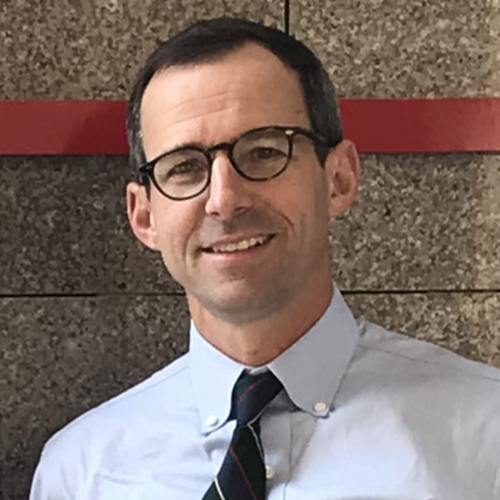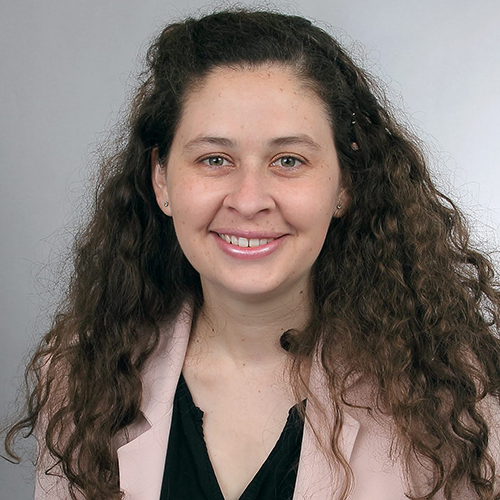James Johnston, M.D., and Martina Gonzalez-Gomez, M.D., M.Sc., partnered to create a global surgery course to equip students with a holistic understanding of surgical care's pivotal role in public health, health care systems, and international development. James Johnston, M.D.
James Johnston, M.D.
Johnston, a professor in the Department of Neurosurgery and director of the Pediatric Neurosurgery Fellowship, practices at the Children's of Alabama (COA) and is the medical director of its Global Surgery Program. Gonzalez-Gomez recently joined the Department of Neurosurgery as a program manager for its newly established Global Neurosurgery Program.
Their global surgery course emphasizes the importance of interdisciplinary collaboration, funding mechanisms, policy advocacy, and equity in advancing surgical care worldwide. Following the tenets of global health, the course is based on global health evidence and core competencies.
The UAB Heersink School of Medicine and the UAB School of Public Health recently launched the UAB Master of Science in Global Health (MSGH). This course is a part of this new master’s program but is available to any graduate student. It provides a comprehensive introduction to global surgery, and students will come away with an understanding of theory, practical details, and policy surrounding the subject.
The Heersink communications team met with Dr. Johnston and Dr. Gonzalez-Gomez to discuss global health surgery and what students can expect from this new program.
Q: How did you become interested in global health and get connected with UAB?
Gonzalez-Gomez:
My interest in global health was shaped by a culmination of experiences in my professional career and my upbringing in Colombia. While it is a wonderful place to live, I witnessed significant health inequities and disparities. Neurosurgery exposed me to the challenges faced by hospitals with limited resources.  Martina Gonzalez Gomez, M.D., M.Sc.These experiences fueled my realization that various structures could be leveraged to enhance health care and surgical care. Motivated by this perspective, I pursued a master's in global health and global surgery at King’s College London to deepen my understanding of the impact of global health and global surgery across disciplines. Fortunately, I found like-minded professionals at UAB, particularly within the pediatric neurosurgery division. My current Global Neurosurgery Program Manager position seamlessly intertwines my passions for global health and surgery.
Martina Gonzalez Gomez, M.D., M.Sc.These experiences fueled my realization that various structures could be leveraged to enhance health care and surgical care. Motivated by this perspective, I pursued a master's in global health and global surgery at King’s College London to deepen my understanding of the impact of global health and global surgery across disciplines. Fortunately, I found like-minded professionals at UAB, particularly within the pediatric neurosurgery division. My current Global Neurosurgery Program Manager position seamlessly intertwines my passions for global health and surgery.
Johnston:
I have been fortunate to spend time working with partners in Vietnam, Ghana, Egypt, Uganda, and Haiti. I also worked as a Global Surgery intern at the World Health Organization (WHO) and studied Global Health Policy at the London School of Hygiene and Tropical Medicine.
After completing my neurosurgery residency at Washington University and pediatric neurosurgery fellowship at Saint Louis Children’s Hospital, I was hired as junior faculty at UAB. The UAB community has supported my efforts to build a joint global neurosurgery program between UAB and COA, allowing me to grow my skill set as a neurosurgeon and global surgery advocate.
Q: Why did you choose to teach the Global Surgery course?
Gonzalez-Gomez:
We chose to teach the global surgery course because of the often-overlooked importance of global surgery as an integral component of global health. This emphasis is essential for students, enabling them to broaden their perspectives and gain a comprehensive understanding of all facets of global health. We believe this subject is crucial for students to explore, as global surgery extends beyond just surgeons; it involves many types of health professionals and intersects with different global development sectors.
By teaching this course, we aim to better integrate global surgery into global health education and the UAB community. We want to emphasize to students that global health is a complex structure. While many health issues are typically addressed at a national level, academic institutions and non-governmental organizations are also responsible for tackling these issues. In our view, surgical care is vital in national health systems, contributing to development and aligning with policy objectives such as the UN Sustainable Development Goals (SDGs).
Q: What can students expect to learn from this course?
Gonzalez-Gomez:
We aim to guide students along a pathway in global surgery, providing a comprehensive understanding of essential concepts. This pathway is designed to empower them to actively contribute to global surgery conversations and apply this knowledge in their future practices and careers. We will cover crucial concepts related to global surgery, explore documents and resolutions that have defined the field, describe surgical entities in the global burden of disease, and quantify the ongoing need for surgical care in various WHO regions.
Beyond theoretical concepts, our course also explores practical aspects taught from the perspective of experienced surgeons and other health professionals at UAB who have engaged in global clinical, educational, and research collaborations. By reviewing and observing these experiences, students will gain insights into elements of successful partnerships and various learning experiences that have shaped the way these professionals work today.
Furthermore, our curriculum addresses the integration of global surgery within broader global health priorities. Topics such as ensuring equity in global surgery, policy, and advocacy will be explored. This multifaceted approach makes our course unique, with components that aim to shape students' minds to be open, receptive, and equipped with the knowledge necessary for actively contributing to the field.
Q: What have been some of your favorite moments of teaching GHM 680?
Gonzalez-Gomez:
One of the most rewarding aspects of teaching global health and the 680 course is the connection forged with students. Despite being an online course, the feedback received has been immensely gratifying. Students express how the course holds value in their lives and contributes to their professional growth. Witnessing them expand their mindset within this discipline is genuinely fulfilling.
Engaging in the process of building the course has been a profound learning experience. Exploring various concepts has deepened my understanding of the subject with each iteration. This continuous learning journey sparks creativity in presenting concepts in a manner that is not only comprehensible but also lays the groundwork for future advocacy for surgical care. It's a dynamic process that enhances both teaching and learning.
Q: Why is surgery an essential skill in Global Health?
Johnston:
For many years, surgery was considered outside the normal boundaries of global health. Global health has traditionally focused on infectious diseases and programs to control those diseases. Of course, there have been powerful global health achievements that opened the door for efforts in global surgery, but it also brings up a different set of issues in terms of how to strengthen a surgical system.
We must consider how to initiate effective knowledge transfer while maintaining the ethics of intervention, the distribution of medications, the availability of resources, etc. For instance, although we can do surgery, should we do surgery when there is no appropriate follow-up and long-term care? Also, how does that affect local caregivers? There's this whole academic field of global surgical capacity building that is so new. We are thankful to be part of the larger UAB ecosystem, which allows us to better integrate global surgery with the larger global health enterprise at UAB, Sparkman, MHIGH, etc. I’m excited to be part of the very beginning.